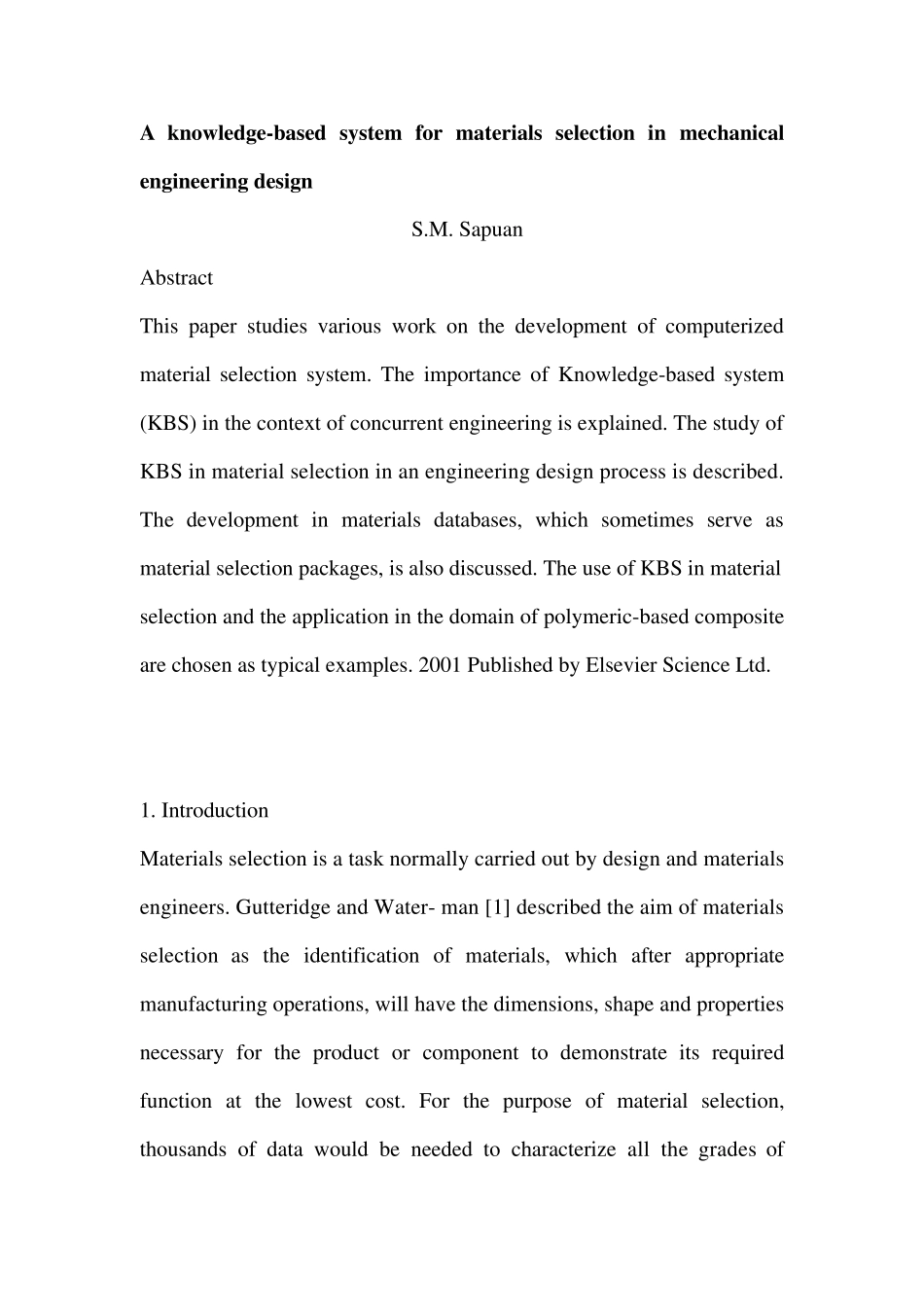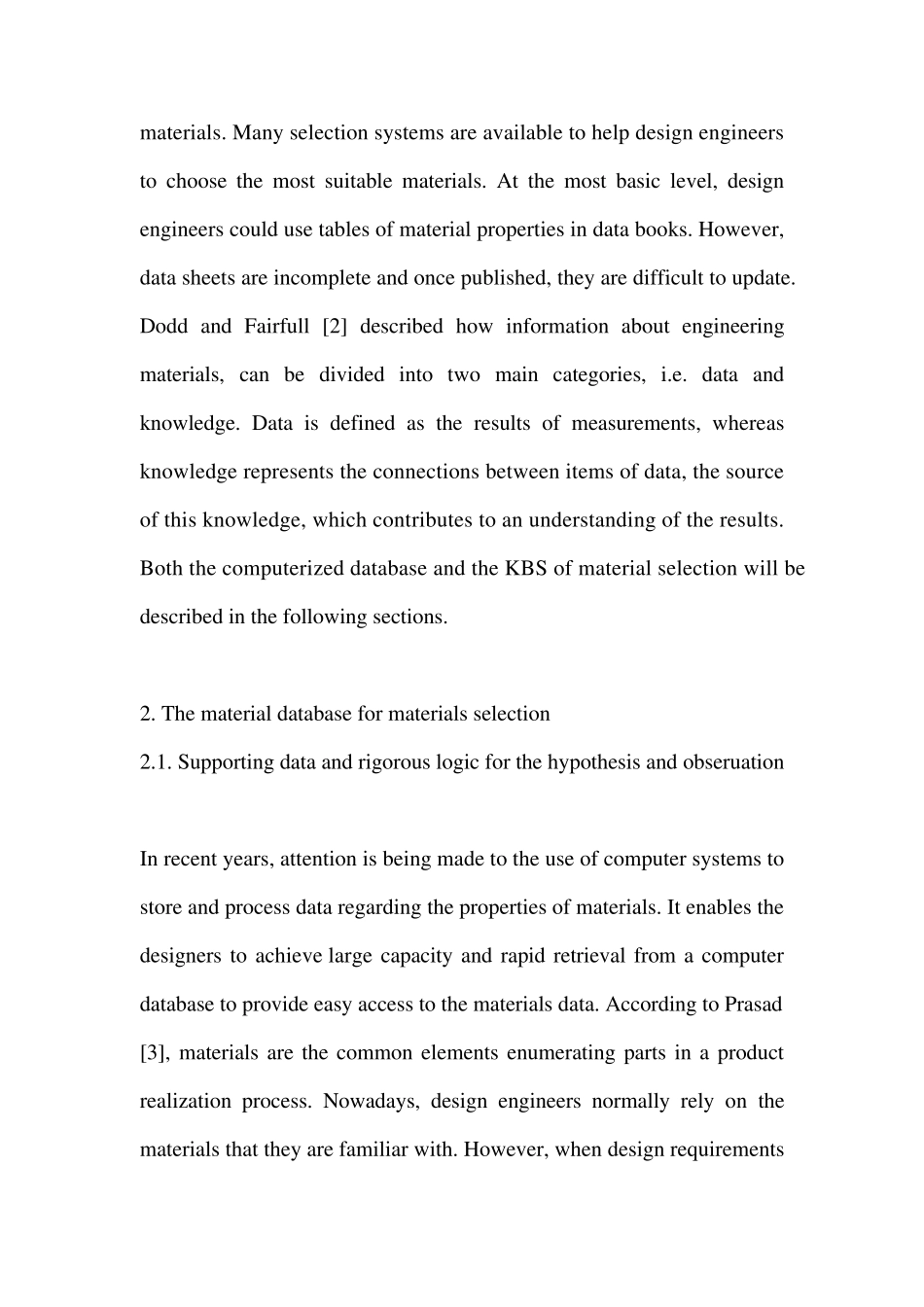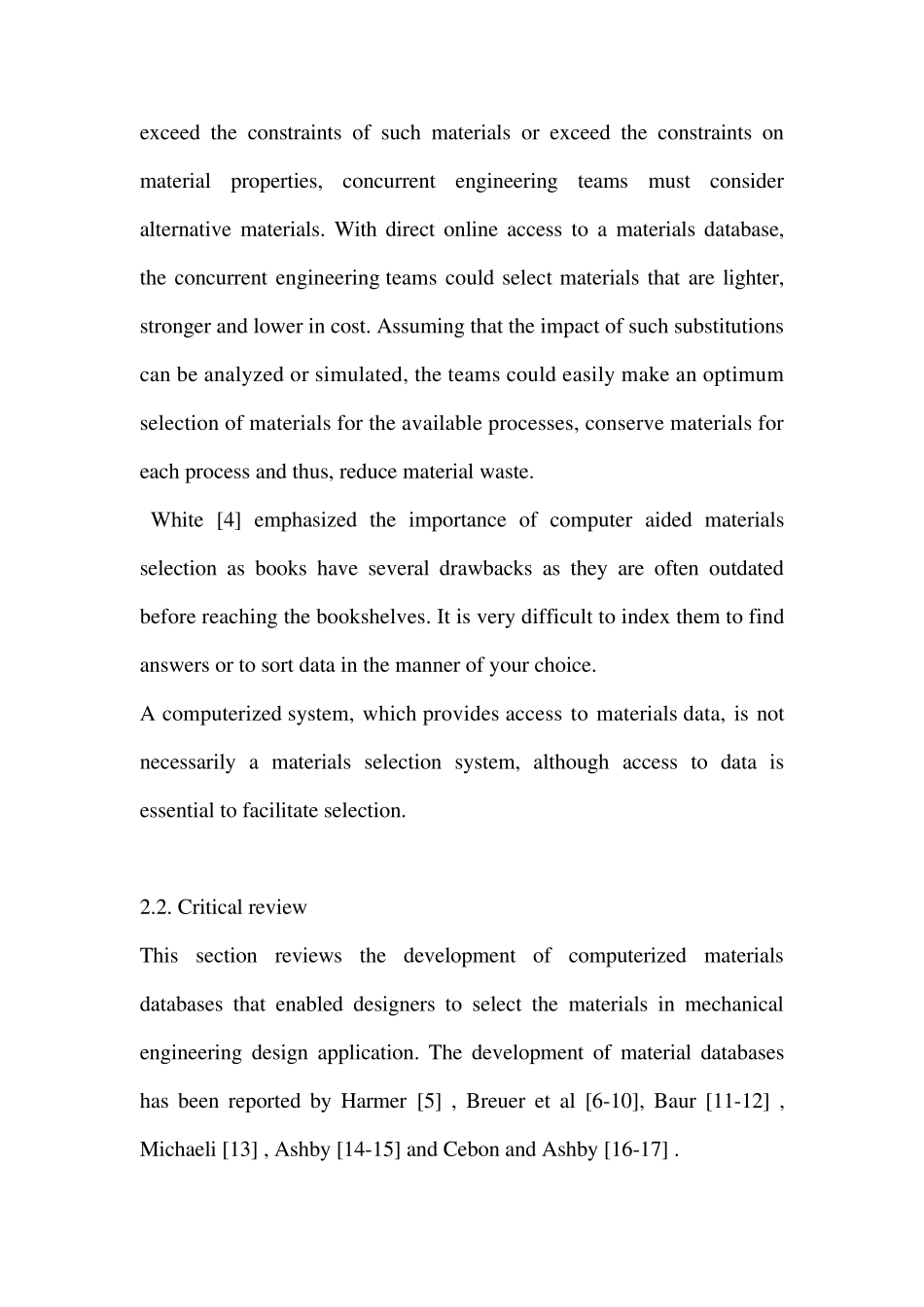A knowledge-based system for materials selection in mechanical engineering design S.M. Sapuan Abstract This paper studies various work on the development of computerized material selection system. The importance of Knowledge-based system (KBS) in the context of concurrent engineering is explained. The study of KBS in material selection in an engineering design process is described. The development in materials databases, which sometimes serve as material selection packages, is also discussed. The use of KBS in material selection and the application in the domain of polymeric-based composite are chosen as typical examples. 2001 Published by Elsevier Science Ltd. 1. Introduction Materials selection is a task normally carried out by design and materials engineers. Gutteridge and Water- man [1] described the aim of materials selection as the identification of materials, which after appropriate manufacturing operations, will have the dimensions, shape and properties necessary for the product or component to demonstrate its required function at the lowest cost. For the purpose of material selection, thousands of data would be needed to characterize all the grades of materials. Many selection systems are available to help design engineers to choose the most suitable materials. At the most basic level, design engineers could use tables of material properties in data books. However, data sheets are incomplete and once published, they are difficult to update. Dodd and Fairfull [2] described how information about engineering materials, can be divided into two main categories, i.e. data and knowledge. Data is defined as the results of measurements, whereas knowledge represents the connections between items of data, the sour...


